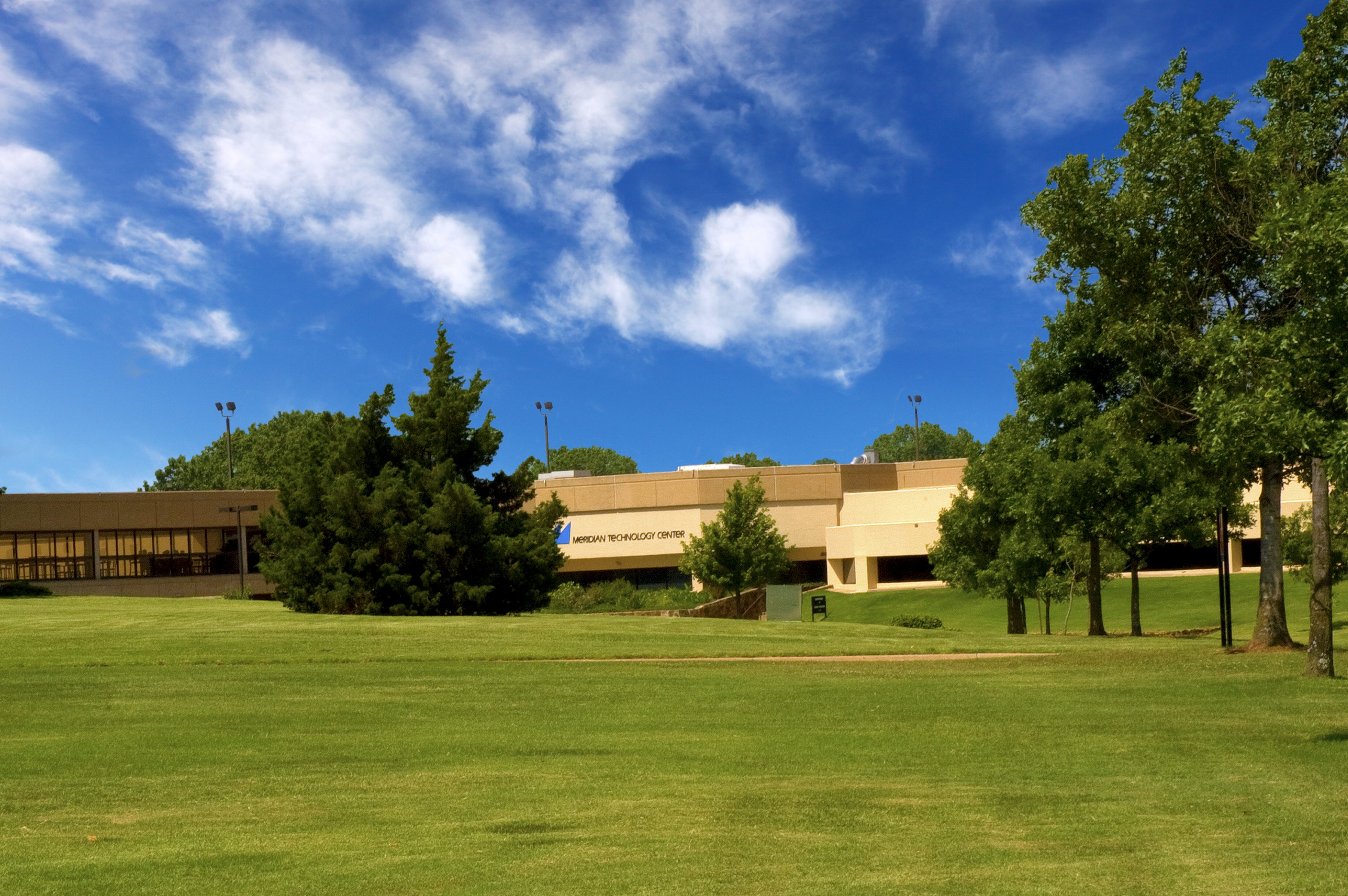Background:
Meridian Technology Center is one of Oklahoma’s leading career technology centers. Located in Stillwater, OK, Meridian supports over 70 career training majors, 800 enrolled students and upwards of 11,000 individuals taking specialized classes each year. Majors and classes offered at Meridian are diverse, covering fields such as health sciences, architecture and construction, information technology, digital media and more.
Meridian’s courses are extended to individuals ranging from high school students to working adults. Meridian plays an integral role in preparing high school students across North-Central Oklahoma for the workforce as well as for future education with programs such as their Pre-Engineering Academy. Ultimately, their primary objective is to equip students with the tools they need to thrive in an ever-changing and competitive marketplace.
Challenge:
Meridian is unique in that they’re always looking on the horizon for new ways to improve their students’ education experience. With more and more students accessing content and software applications from off-campus locations, there was an increasing demand for uninterrupted remote access.
In order to stay ahead of that curve and support a more BYOD approach, Meridian sought to improve accessibility to these resources through desktop virtualization. A virtual desktop infrastructure (VDI) would also provide the benefit of streamlining their IT operations across the board, resulting in easier management, less overhead and reduced operating costs.
Desktop virtualization would undoubtedly help students across several majors as well as faculty. However, given that they are a technical training center, some of Meridian’s majors require the use of high-end software applications. A perfect example of such a group is their Pre-Engineering Academy. Pre-Engineering students at Meridian use a variety of graphic-intensive Autodesk® programs, such as AutoCAD®, Inventor® and Revit®. Even applications like Google Earth™ require OpenGL and DirectX, both of which are graphically demanding.
When such programs are simultaneously accessed by up to 70 computers in Meridian’s Pre-Engineering labs, IT resources can get bogged down. Traditional desktop virtualization would only go so far in improving widespread access to these graphic-intensive programs.
With that in mind, it was clear that Meridian needed a next-level VDI overhaul that took into account their special graphical needs. The only questions were what solutions would this process involve and how would they implement them?
Solution:
To help answer their questions, Meridian turned to their friends at InterWorks. Meridian’s relationship with InterWorks began several years ago when InterWorks helped to implement an initial desktop virtualization solution. The fact that InterWorks’ HQ sits across the street from Meridian in Stillwater also helped.
“We’ve always had a great relationship with the staff at InterWorks. Their expertise is invaluable. Having a company that works with this technology day-in and day-out is a really helpful partnership for us.”
-Matt Trumbull, Information Systems Manager at Meridian
Conversations with InterWorks began around improving general access to content and resources through updated workstations and improved VDI technology where applicable. The project changed directions upon the revelation of a new technology: NVIDIA® GRID™.
“We went into this expecting to buy a bunch of workstations. We instead found ourselves facing the opportunity to not only deliver our curriculum, but to also enhance it while saving money and reducing IT management overhead through VDI. InterWorks made us aware that there is NVIDIA GRID technology that allows 3D graphics in a virtualized desktop environment. This was a game-changer for us.”
-Matt Trumbull, Information Systems Manager at Meridian
In essence, NVIDIA GRID was the missing piece to Meridian’s desktop virtualization puzzle. With these graphics cards in place, desktop virtualization became an even more attractive option for their resource-heavy users.
To sell internal staff on the idea of desktop virtualization, Meridian performed a detailed cost analysis. This analysis took into account hardware, labor and infrastructure, revealing a per-desktop cost of $690 per student to implement a VDI solution using NVIDIA GRID technology. After comparing those figures to the cost of implementing traditional workstations, Meridian found that desktop virtualization was more cost-effective and a better long-term solution.
The real turning point occurred when InterWorks provided a proof of concept for Meridian’s IT personnel and Computer Training Services staff. The POC featured a live demo that demonstrated how effectively a VDI with NVIDIA GRID technology could handle Meridian’s graphic demands. Both the cost analysis and the POC convinced everyone at Meridian, spurring them to move forward with the implementation. InterWorks and Meridian soon architected a three-pronged VDI solution.
First, Meridian purchased three Dell PowerEdge™ R720 servers from InterWorks. Each server contains one NVIDIA GRID K2 card, the cornerstone of the implementation. For the VDI, VMware vSphere 5.5 served as the hypervisor while Horizon View 6.0 acted as the desktop virtualization client. With users accessing pooled images of Windows 7 Enterprise desktops, Meridian could reduce their storage footprint and increase their savings.
Once in place, the new VDI environment could support 260 concurrent sessions and a total of 600 users. This infrastructure would effectively handle the vast majority of Meridian’s users at any given time, including those requiring extensive graphical capabilities.
To implement these solutions with minimal interruption to day-to-day operations, the project needed to occur in phases. The first phase would include a rollout of this solution to the resource-heavy Pre-Engineering Academy. This first phase would also serve as a sort of testing ground for subsequent phases of the implementation.
Of course, Meridian wouldn’t be going it alone in their implementation. InterWorks would help facilitate every step of the implementation, offering assistance and expertise as needed.
Results:
Meridian and InterWorks executed the first phase of the implementation with great success. Their Pre-Engineering Academy now supports 60 virtual desktops that make use of the of the K2 cards for 3-D graphics. In addition to rolling this implementation out to those desktops, Meridian and InterWorks also implemented the solution for all of Meridian’s IT personnel. Once completed, both students and staff noticed a considerable uptick in graphical performance and accessibility as a whole.
“Overall, the process went smoothly and didn’t interfere with our existing operations. InterWorks did a great job of supporting us through this entire implementation, and it was a truly collaborative effort. One great benefit for us has been consistency. We know that every computer is running and is going to be much easier to manage. Students also know that whatever lab they go to will be the same in terms of performance.”
-Matt Trumbull, Information Systems Manager at Meridian
The next phase of the implementation involves rolling out the new VDI to their three Computer Training Services labs, two of which are mobile labs that can be taken to their clients. After updating their labs, Meridian plans on rolling out the implementation to select faculty members. Once that phase is finished, Meridian will have around 230 virtual desktops supported by their new infrastructure.
These first efforts give Meridian a solid foothold into accomplishing their ultimate end goals: improving accessibility, reducing overhead and minimizing operating costs. Their efficient VDI and ongoing transition from legacy computers to thin clients also help them to meet their campus-wide conservation initiative of reducing power consumption by 20% before 2020.
By taking a proactive approach to improving student interaction with technology, Meridian’s leadership serves as a prime example for technology centers everywhere. Their commitment to providing the best learning environment possible gives their students a distinct advantage in obtaining a quality education. With a solution like VDI in place, Meridian also reaps the benefits of a streamlined IT infrastructure. At the end of the day, these benefits translate into a win for everyone.


